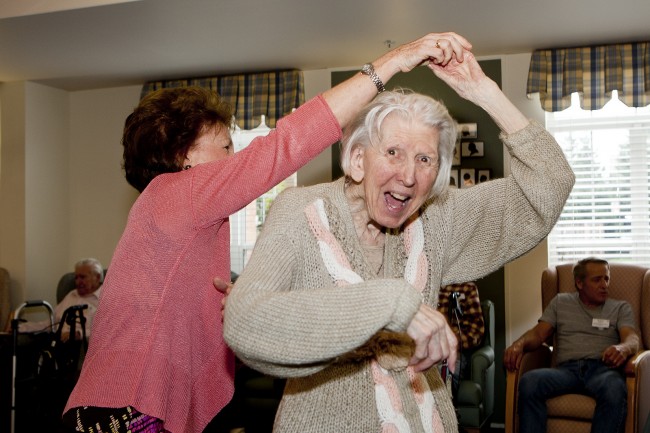
A common misconception is that Alzheimer’s disease and dementia are the same illness. Medical News Today (MNT) explains that Alzheimer’s is a disease that causes the brain to forget how to make the body function until the organs shut down. By contrast, dementia, as defined by MNT, is a collective term used to describe a variety of brain disorders related to the loss of memory, language skills, and cognitive thinking. When comparing these definitions, one can see dementia and Alzheimer’s disease are not the same. Approximately 45.7 million people worldwide suffer from the malady. Moreover, this number could reach 75.6 million by 2030 and 135.5 million in 2050. According to the Alzheimer’s Association, early onset Alzheimer’s is typically diagnosed between ages 40 and 50, but more commonly, the onset occurs after age 65. However, the beginning of dementia occurs later in life, but there are things a person can do to increase brain health.
According to WebMD, vitamin D is necessary for maintaining cognitive function. The best source of vitamin D is the sun. However, those who do not have access to adequate sunlight need to use supplements. WebMD further suggests the best food sources for vitamin D supplementation are wild-caught salmon and mackerel, or mushrooms exposed to ultraviolet light. Other vitamin D-rich foods include canned sardines or tuna, beef liver, egg yolks, cheese, and milk, as well as yogurt that is vitamin D fortified. Additionally, exercising the brain is essential. Useful tools for keeping the mind strong are reading, puzzles, and games that require thought. Moreover, physical exercise such as brisk walking will also aid in maintaining healthy brain cells.

Cognitive Changes in Ageing Versus Alzheimer’s:
- A person with dementia occasionally makes ill-advised choices, whereas a person with Alzheimer’s has difficulty making decisions and poor judgment capabilities.
- Sometimes a person forgets to make a payment, but someone with Alzheimer’s has forgotten the concept of money.
- Upon occasion, a person will forget which day it is and then remember later. However, a person with Alzheimer’s completely loses track of the dates and even the seasons.
- During a conversation, one may forget which word to use, but for someone with Alzheimer’s finding appropriate responses becomes almost impossible.
- Sometimes people lose things. However, a person with Alzheimer’s simply does not remember the object.
While a person’s cognitive changes will continue and worsen with age, Alzheimer’s is not always the reason. One must ask if the symptoms are dementia or Alzheimer’s because they are not the same. Tools for personal evaluation at home were developed by Douglas W. Scharre, M.D., from Ohio State University. The tests are called Self-Administered Geo-Cognitive Examinations (SAGE). The SAGE tests are downloadable and free of cost, they are available in four languages, and each language has four different versions. These tests are a good place to begin. The next step would be observing the following 10 warning signs. If there are any present, it is time to get professional testing and a diagnosis. The Alzheimer’s Association insists on the importance of knowing these signs and states it is critical they not be ignored.
Top 10 Warning Signs of Alzheimer’s
- A symptom is life-disrupting memory loss, especially if the person forgets something recently learned and does not remember at a later time.
- If there are changes in the individual’s ability to make plans or problem solving, this is a situation that requires medical evaluation.
- Another concern is a person’s inability to complete familiar tasks, such as remembering how to use the microwave or television.
- Be aware that once a person begins forgetting where they are or how they got there is a major problem.
- A person who is having trouble reading, judging distance, or recognizing color and contrast could be experiencing Alzheimer’s symptoms. However, the possibility of cataracts should be ruled out first.
- Other symptoms would be the development of new cognitive issues including finding specific words, writing, and difficulty swallowing.
- A common problem is losing objects by putting them in odd places, such as putting a book in the dishwasher. A similar concern would be if the patient appears to be looking for something, and they cannot remember or explain what they are doing.
- Observing changes in a person’s judgment, decision-making, and taking less care of their physical appearance or personal hygiene could be an excellent indicator.
- Evaluate if the person is avoiding social situations due to changes in the desire to communicate and/or a loss of interest in things once enjoyed, or simply the need to take a break from typical routines. These are serious signs of depression. Therefore, consultation with a physician is essential.
- Be aware of changes in mood or personality such as being confused, depressed, suspicious, fearful, etc. These changes are in contrast to the person’s usual disposition and not mere irritation or sadness.
There are many different theories about aging and the brain. It is important to remember that Alzheimer’s disease and dementia are not the same. Alzheimer’s is a progressive disease that changes a person’s life completely. However, dementia patients can use tools to aid them in daily life such as appointment books, sticky notes, and alarms. Whether dealing with dementia or Alzheimer’s disease, the aging brain needs nurturing and caregivers are vital partners in the overall well-being of the patient. Research studies continue and MNT indicates researchers remain optimistic about discovering more efficient treatments.
By Cathy Milne
Edited by Leigh Haugh
Sources:
Medical News Today: Dementia: Causes, Symptoms, and Treatments
Tech Times: Remember This: One-Third Of Babies Born in 2015 Will Develop Dementia in Their Lifetime
WebMD: The Truth About Vitamin D: Vitamin D Food Sources
The Ohio State University: Catch memory problems early, take the SAGE test
Featured Photo Courtesy of Fairfax County’s Flickr Page – Creative Commons License
Inline Photo Courtesy of Jay Bergesen’s Flickr Page – Creative Commons License




2 thoughts on “Dementia and Alzheimer’s Disease Are Not the Same”
Alzheimers causes dementia.
I’ve never heard anyone ever say they’re the same.
FYI, I work in a care home for dementia sufferers.
cathy, i enjoyed your article about the difference between dementia and alzheimer’s disease; but could you please do a follow-up article to this covering the alzheimer’s-like effects of aluminum and other heavy metals in chemtrails that we all have been breathing for around 15 years, now. is that chemtrail effect more like dementia or alzheimer’s?
Comments are closed.